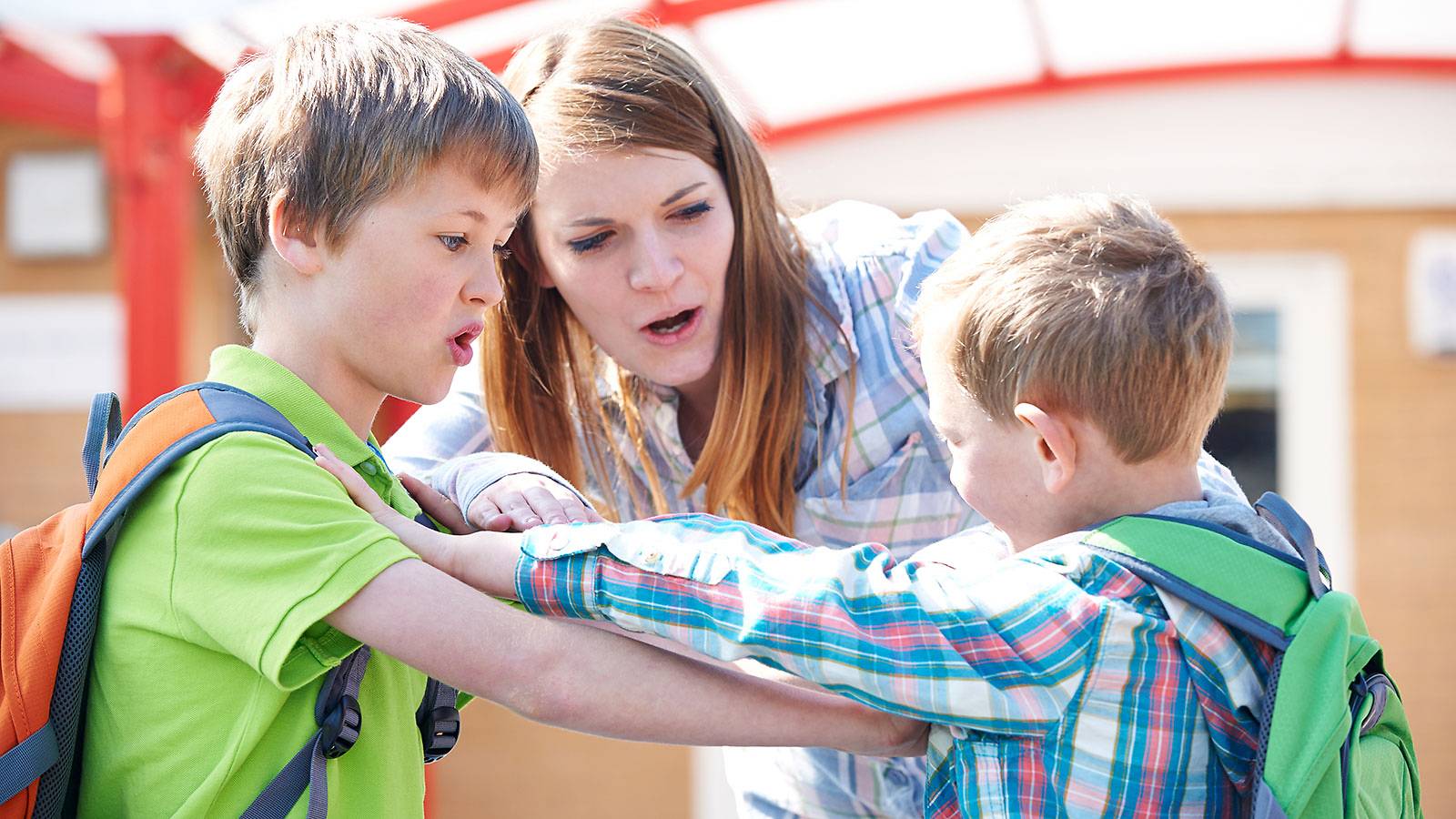A child who apologises but does not mean it. Does it matter?

Picture a playground: Your preschooler is running around with her friends when she suddenly pushes one down to the ground and grabs her toy.
What is your immediate reaction?
a) Ignore and let the children settle the matter between themselves.
b) Apologise to the other child and her parent and make sure your daughter sees this.
c) Insist that your daughter say sorry for her actions.
If you chose option (c), you are not alone. Many parents believe it is only right that their child says sorry for what she did wrong as this is the only way she will learn from her mistakes.
However, parents who choose option (a) strongly feel that young children should not be made to apologise. To them, getting kids to just mouth the words, without understanding what they mean or knowing how to help fix what they broke, will not solve the bigger problem.
If an apology is done on the spot by the wrongdoer, it instantly clears the air and pacifies the feelings of the person they hurt.
Indeed, as adults, we expect an apology when someone has wronged us. A sincere “I’m sorry” is one of the most effective ways to resolve a conflict, bring about forgiveness, calm the mind and smooth over any doubts that may linger.
Naturally, many of us expect children to behave the same way ― to apologise when they hurt others, whether emotionally or physically. But when do very young children begin to have a firm understanding of what saying sorry really means?
* A child aged 2 and below will find it difficult to grasp the concept of wrongdoing, so an apology will mean little to her. Enforcing the rules of play, for instance, may work better.
* A child 6 years and above will be old enough to know what’s right and wrong. Since she will have the ability to empathise with others, she will know how to say sorry and mean it.
* A child who is aged between 3 and 5 At this stage, most preschoolers are still in the “me” phase. That said, some already have the emotional maturity to understand why and when an apology is needed.
There are two schools of thought:
YES, a child should say sorry.
Parents who insist their kid apologise feel that it is a mistaken belief that young children cannot understand others’ feelings or put themselves in another person’s shoes. They say if an apology is done on the spot by the wrongdoer, it instantly clears the air and pacifies the feelings of the person they hurt.
Elaine Lim, a mum of 3-year-old twins, related that she saw other children hug her kids in their childcare centre when they apologised after breaking a classmate’s toy. She said, “Their teacher made them say sorry, which they did and it worked wonders for the children’s morale. No one was left feeling upset, even the child whose toy was broken.”
Lim adds that the incident was a teachable moment for the preschoolers, helping them learn about empathy and how to cope with a difficult social situation.

NO, a child should not say sorry.
Then, there are parents who feel that forcing children to apologise only causes them to become less kind and thoughtful, and worse, develop a taste for lying. They argue that toddlers and preschoolers are simply not wired with enough empathy skills as yet, so even if they say “I’m sorry”, they do not mean it.
Stay-at-home mum Ruth Tan has this to say. “So, the parent makes her daughter say sorry. She does so obediently but it is not a genuine apology. There are no real feelings involved. She’s just saying it because she’s told to do so.” Tan adds that it is only a matter of time before children learn that uttering the words “I’m sorry” easily and quickly enough will appease the adults and get them out of trouble.
Empathy may be one of the last social skills a preschooler develops, but with time and plenty of patience, it is possible to teach a young child the fine art of apology and mean it.
Perhaps you are thinking at this point ― do we then let the child get away with her bad behaviour? Absolutely not. Empathy may be one of the last social skills a preschooler develops, but with time and plenty of patience, it is possible to teach a young child the fine art of apologising and mean it. Here’s how:
1. Start early Children make all kinds of bodily sounds and some do delight in showing off their skills! You can teach them to cover their mouths when sneezing or coughing, and to say “excuse me” when they belch or fart in public. This gives them an early sense of awareness that certain behaviours aren’t socially acceptable as a prelude to teaching them about making apologies.
2. Be a role model Child psychologist and author Dr Laura Markham says a valuable lesson is to show your child that you can be an apologetic parent. If you made a mistake, admit it and say sorry. It isn’t a sign of weakness. In her book “Peaceful Parents, Happy Kids”, she explains that when a kid has a parent that never apologises, she is likely to conclude that apologies are unimportant. So, if you had chosen option (b) in the above scenario, know that it is a good way to help her understand the apology process better and how it can potentially heal an unpleasant situation.
3. Do it together The next step Dr. Markham advises is to teach your child to take responsibility for her actions. If she can’t do it alone, offer to say sorry together with your child.
4. Convey their apology through a kind gesture For very young children, it may also be easier to get them to, for example bringing a toy to replace the one your child broke, offering a hug to stop the tears, or drawing a nice picture for the injured party.
Photos: iStock
Like us on Facebook and check SmartParents regularly for the latest reads!
Elsewhere on SmartParents.sg…
4 ways to survive junior’s teen years
